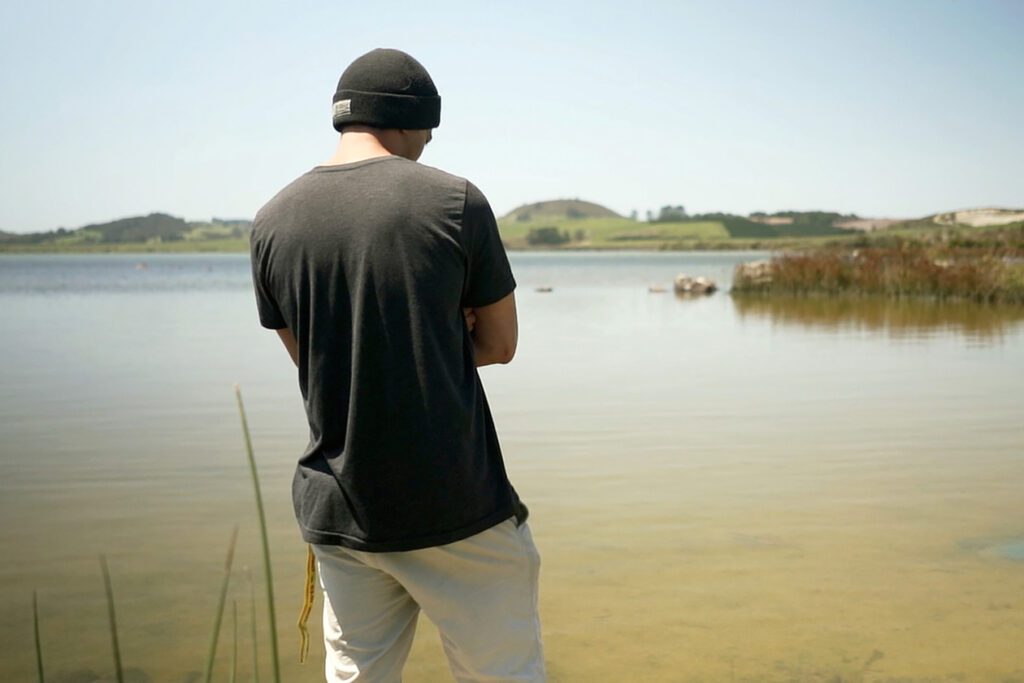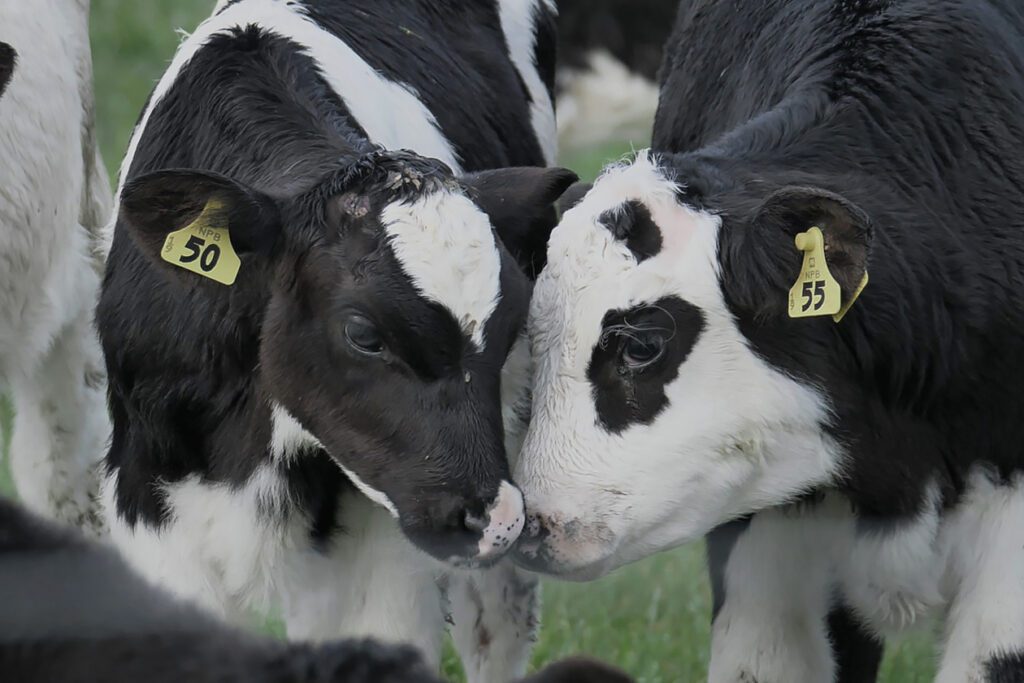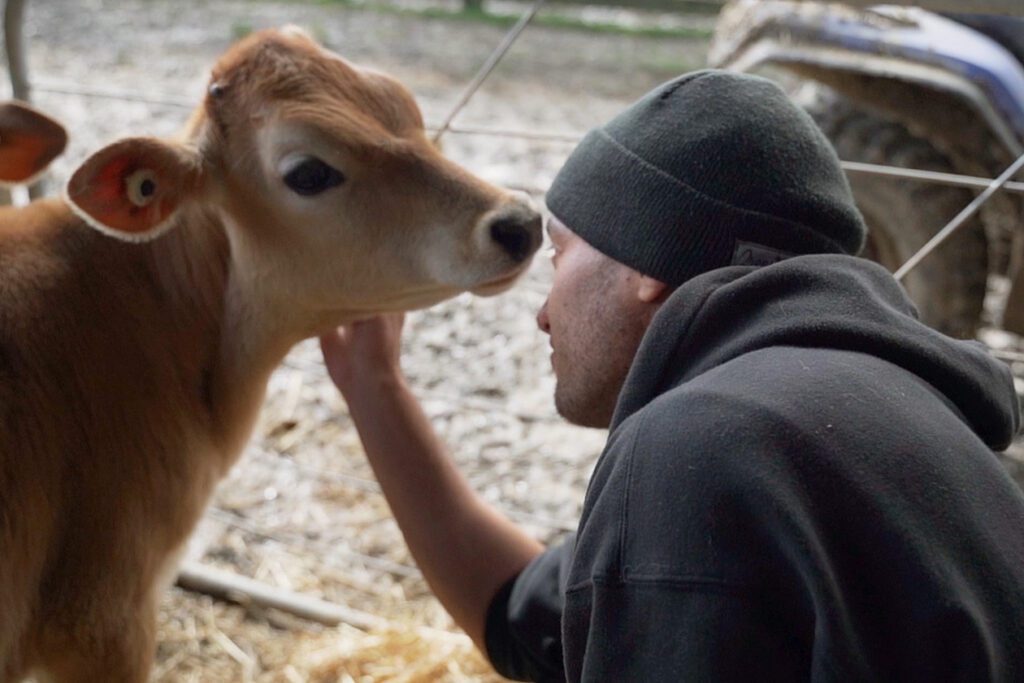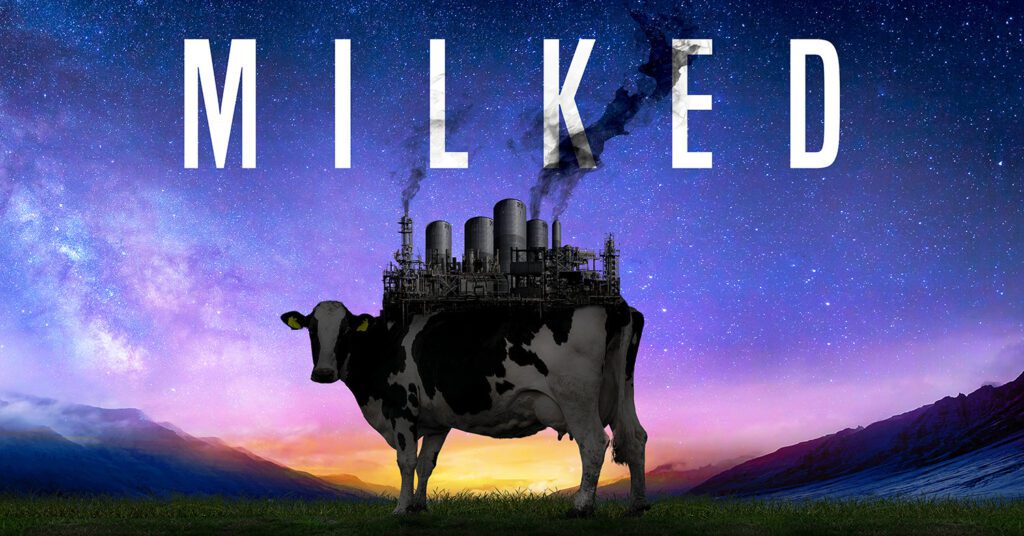In a new documentary released this week called Milked, Māori activist Chris Huriwai follows the environmental and cultural crises caused by New Zealand’s dairy industry—and specifically, by multi-billion-dollar dairy producer Fonterra. Fonterra is New Zealand’s largest company, producing approximately 30 percent of the world’s dairy exports.
Over the course of three years, Huriwai and Milked director Amy Taylor documented Fonterra’s greenwashing sustainability marketing, as well as the mental health and debt crises of New Zealand’s dairy farmers. Contrary to the happy, grass-fed cows of Fonterra’s consumer packaging and the claims of their sustainability report, the reality is quite grim. Taylor and Huriwai uncovered widespread animal abuse, coal-powered pollution, and high levels of methane pollution.
We spoke with Taylor about how Māori populations are affected by soil erosion and waterway pollution, the urgent need to reduce global greenhouse gas emissions caused by the dairy industry, and what a milk-free future might look like.
LIVEKINDLY: Your film’s protagonist, Chris Huriwai, endures a hero’s journey of disillusionment as he learns how deceptive the dairy industry is in New Zealand. He gets stonewalled and greenwashed by Fonterra all along the process.
Amy Taylor: Chris was shocked at how bad the actual impacts of the dairy industry in New Zealand are. The industry is failing in every way possible, and he was surprised that it wasn’t working for anyone—the economy, or farmers. We obviously knew it was bad for the animals and bad for the environment, but the economic side of it, and the threat of the coming agricultural disruption, were quite unknown to us.
LIVEKINDLY: So what are the hidden aspects of the dairy industry that you want to amplify with this film?
Taylor: People tend to make the dairy industry out to be better than the meat industry. Because they like to hide the fact that, you know, you do have to take the young off the mother cows. And those calves are generally killed when they’re newborn or at a very young age. So, yeah, I think they tend to make out that it’s a wholesome industry. And, obviously, it’s quite closely aligned to the meat industry, because dairy cows themselves end up as hamburger after only a few years of being worn out producing calves and milk.
Most people still believe that farming cows is a good use of land. And they’re totally unaware of the fact that we’re using the majority of the world’s agricultural land to farm animals and grow food to feed them.
LIVEKINDLY: You say in the film that nearly a quarter of New Zealand greenhouse gas emissions are caused by dairy—more than all transportation combined. That’s a pretty shocking figure.
Taylor: The majority of that is methane, and people still have a false idea about methane. The methane situation is urgent. It’s 84 times more potent than CO2. A global methane pledge was signed at COP26, and New Zealand was part of that, along with 100 countries around the world. We want to reinforce that that pledge needs to happen, and that we need reduce methane emissions drastically.

LIVEKINDLY: You speak in the film to the fact that 95 percent of New Zealand’s dairy products are exported. Is increased demand in nations like China the reason for the 132 percent increase in dairy emissions in the last 38 years, or is that simply due to a growing population?
Taylor: The rising emissions have been due to the dairy herds getting bigger, so more cows are on the land, which means more methane and nitrous oxide. There’s also been a huge increase in the use of synthetic nitrogen fertilizer. Although New Zealand is famous for talking about its carbon footprint for milk being smaller than other countries, that’s inaccurate really. That carbon footprint assessment is based on the dairy industry’s own research, which doesn’t take into account all the coal that is used to dry the milk to turn it into milk powder, as well as the other kinds of emissions involved with the chain of distribution. They’re only looking at on-farm emissions, which is misleading.
Most people still believe that farming cows is a good use of land. And they’re unaware that we’re using the majority of the world’s agricultural land to farm animals.
Amy Taylor, ‘milked’ director
LIVEKINDLY: Chris points out that Māori lactose intolerance is common, as well as a rise in diabetes, heart disease, and cancer in Māori communities that wasn’t present pre-colonization. And yet, all kids in New Zealand, regardless of ethnicity or lactose intolerance, are given Fonterra for school milk. Do you see this as a form of food oppression?
Taylor: Chris’ initial journey was triggered by the milk in the school program. He started looking into things more and realized that there was that dietary racism element. He started doing social media videos and posts about the dairy industry and about the injustice of that. It was very interesting in our research to discover that the industry itself, including Fonterra, has a say in the guidelines, to the point where they were able to remove the suggestion of alternative milks. They have a direct influence on the nutrition guidelines. Chris is really passionate about using veganism as a decolonization tool. He’s trying to decolonize systems that have been pushed on the indigenous culture here, and the food system is a big part of it.
LIVEKINDLY: What is the scope of influence that lobbyists have on politicians in New Zealand’s dairy industry?
Taylor: Dairy is our biggest industry, and it’s pretty much part of this whole country. Everyone is involved in the dairy industry, or knows someone who is. Our prime minister, Jacinda Ardern, is from a dairy farming town called Morrinsville. Lobbyists play a role, and even the Green Party here has been a little bit slow to stand up against it. We’re going to aim to have a parliamentary screening of the film and try and get some discussion going. It’s tricky, and very hard to make change happen.

LIVEKINDLY: The dairy industry is affecting waterways, soil erosion, and perhaps most devastatingly in terms of culture, the wetlands. Talk about their importance for biodiversity and overall health.
Taylor: Animal agriculture took out 90 percent of our wetlands, which are crucial for filtering the water. Many wetlands got drained and then made into dairy farms. There’s definitely potential for reversing a lot of the damage and restoring wetlands and waterways. Once we do shift away from animal agriculture, nature has an incredible way of regenerating.
LIVEKINDLY: Let’s talk a little bit about farmer longevity. The film puts forth the statistic of 167 farmers having died by suicide in the past 10 years, as well as the story of a 23-year-old farm manager who suffered grave mental health detriments after having to kill calves due to the Mycoplasma bovis disease. Also, you say New Zealand farmers are $38 billion in debt.
Taylor: Farmers were told to intensify their farms, to take out loans, get more cows, and create bigger milking sheds, so they could up their output. That massive debt hasn’t worked out for our farmers.
People always talk about the isolation contributing to the mental health challenges that farmers face. They talk about that and about the pressures of debt. But not many people have talked about the fact that farmers have to witness and be part of some awful situations with animals, having to kill them and watching them suffer. And I think a lot of farmers we’ve spoken to, that’s really affected them. They don’t know how to handle that side of the job. So it’s not something that’s acknowledged in the industry.
LIVEKINDLY: In Milked, you show a pro-dairy cover story done by a prominent New Zealand magazine called North and South. The article was funded by The Riddet Institute, which has close ties to the meat and dairy industries, including Fonterra—who were also one of the sources. Is New Zealand media complicit in supporting the dairy industry?
Taylor: Their main advertisers are the meat and dairy industry, in general. So I think it’s very hard for them to try and push back against the propaganda that comes out. When it hits the front page of a magazine that’s got quite a lot of credibility, people just take that as the truth.
I researched extensively and was quite shocked at those ties with Fonterra—and also universities, their massive influence on some of our biggest universities here in New Zealand.
LIVEKINDLY: It takes a really long time to make these changes, but you bring up precision fermentation and cell-cultivated products. At one point, you pose the question of what would happen if Nestlé, which obviously is one of the world’s largest dairy product producers, eventually switched to animal-free milk products or dairy products?
Taylor: Big companies like Nestlé are looking for ways to reduce their emissions profile because they have to, and this is one of the easiest ways that they can do it. It’s really all about the environmental concerns of dairy cows. One of the most hopeful parts of the film for me was interviewing RethinkX co-founder Tony Seba, who wrote the report that predicts that the dairy industry could be wiped out in the next 10 years or so. It’s just a matter of time, since animal-free dairy seems like a no-brainer.
It’s hard to expect everyone to give up dairy, but at least they can change the source of the dairy, and that’s a good start.

LIVEKINDLY: Until precision fermentation is widespread, how do you support the transition to more plant-based dairy?
Taylor: Organizations like Switch4Good, who is also another associate producer with us, help make that transition easy. Their founder, Dotsie Bausch, was in the Game Changers, is an Olympic athlete, and a great advocate for a plant-based diet. We also encourage initiatives like World Plant Milk Day.
LIVEKINDLY: You mentioned The Game Changers. What do you think the power is of a documentary that the written word can’t quite accomplish? When asked what had an influence on them going vegan or flexitarian, people often mention Seaspiracy, Forks Over Knives, and The Game Changers.
Taylor: We’re emotional creatures, and storytelling is a huge part of our culture. And I think the impact of watching a documentary versus reading something is quite a different thing. Obviously, reading is great, but documentaries capture stories in an easily digestible way. People can get really inspired, informed, and entertained at the same time.
Read more about Milked and find out where you can watch the shattering new documentary film here.


